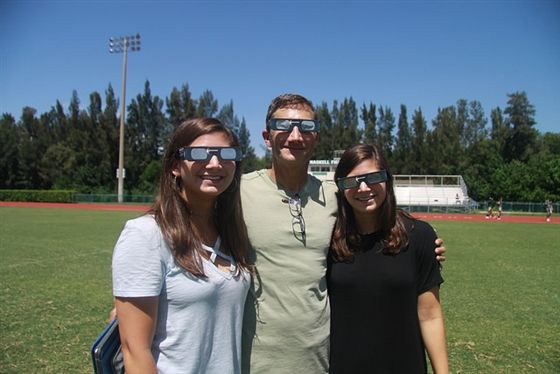

Role Models
Source/Author: Mike Murphy, Headmaster
August 25, 2017
Do you remember when a parent, guardian or teacher advised you to behave as if your mother, grandmother or a trusted adult was watching? As a child, I heard that advice often enough that it was stuck deep in the recesses of my developing brain. Many of us recall hearing the expression, “Monkey See, Monkey Do.” I know better than to compare our brilliant children to monkeys, yet I know there is truth to the expression. People will copy the behavior of others.
Adults have a huge responsibility. Our mothers, grandmothers and trusted adults may not be watching but our children are watching. They notice if we are respectful to all people equally. Do we get our children to school, practice and events on time? Do we tell little lies or exaggerate an issue in front of our children. Do we read? Do we try to learn new things? Are we kind to others? Are we generous?
Our Shorecrest Five Core Values: Responsibility, Respect, Integrity, Knowledge and Compassion apply to all of us. They apply to students, their families, faculty and staff. They apply in the classroom, in the theatre, on athletic fields and at all functions associated to Shorecrest - even the social media posts we make.
There is an interesting line to be drawn when we teach and model Core Values. Our preference is to identify positive behavior, acknowledge it and reinforce it whenever we can.
On a personal level, I am not a fan of awards, star charts or other external methods of recognition for positive and appropriate behavior. I believe immediate acknowledgement with a kind word, smile or nod of approval, leads to children having intrinsic beliefs and values. No one is going to pay them for being responsible and kind as they get older. I see no reason to use extrinsic motivators when we want the behavior to be intrinsically driven. But what happens when a child is not demonstrating a core value?
At some point, we as adults must ask ourselves what we have done to create an environment that does not model, encourage and support the behaviors we want to see in our children. Yes, we need to hold children accountable for their behavior, but we also need to be sure we have not created the conditions that lead to behaviors that are not consistent with our Core Values.
For example, if we allow our children to be over-scheduled and then have no flexibility built in for assignments and work, some children may be inclined to either cheat or not do their work, and thus show a lack of integrity and/or a lack of responsibility. Rather than just blame the child, adults must realize that we may have created the conditions that force the poor behavior.
Imagine the child who comes to school in the morning with a driver who is prone to road rage. Could that child be so desensitized to tantrums that he/she may model the same behavior with peers? Who is to blame, the role model or the child?
Parents, teachers and other adults are role models. Being conscious of what we are modeling is worthy of regular reflection.
Cheers,
Mike
























